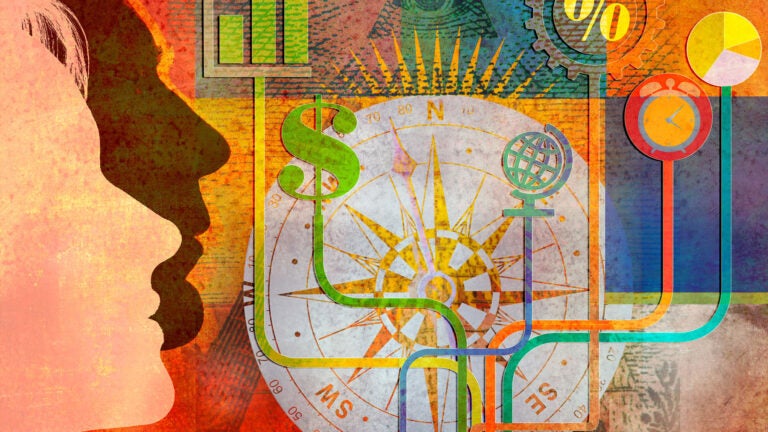
A study finds that poor audio quality can cause listeners to feel distrust for both the information that they are hearing and the person who is sharing it. (Photo/iStock)
The quality of audio influences whether you believe what you hear
The findings are significant amid the recent rise of fake news and public distrust in science, says USC’s Norbert Schwarz
‘Believe nothing you hear, and only one half that you see,” Edgar Allen Poe once wrote.
Maybe he just had a bad phone connection.
A new study by USC and the Australian National University shows that audio quality influences whether people believe what they hear — and whether they trust the source of information.
The findings are significant amid the recent rise of fake news and public distrust in science, said Norbert Schwarz, a co-director of the Mind & Society Center at the USC Dornsife College of Letters, Arts and Sciences.
“When you make it difficult for people to process information, it becomes less credible,” Schwarz said.
The study was published on March 20 in the journal Science Communication.
Why we believe something: In audio we trust
Schwarz and co-author Eryn Newman conducted two experiments — one in which they used two YouTube conference videos and a second with NPR Science Friday interviews with scientists.
For the first study, the scientists selected two YouTube conference talk videos about engineering and physics to show to 97 participants. Using iMovie, the scientists altered the sound quality of the recordings and trimmed them to two- or three-minute segments.
Then, they showed one video with good sound quality and the other with poor sound. Afterward, the participants were asked to rate the talks, from 1-5, worst to best on questions about the talk and the speaker.
“When the video was difficult to hear, viewers thought the talk was worse, the speaker less intelligent and less likeable and the research less important,” the scientists wrote.
For the second experiment with 99 other participants, the scientists altered the sound quality of two NPR Science Friday interviews, one with a geneticist and another with a physicist, and shortened the recordings to two-three minutes.
As soon as we reduced the audio quality, all of a sudden, the scientists and their research lost credibility.
Eryn Newman
“As soon as we reduced the audio quality, all of a sudden, the scientists and their research lost credibility,” Newman said.
Mental stumbles create distrust
The study is the latest to examine the issue of fluency – the ease with which something is processed – and how it can influence people’s judgments about information and their sources.
Schwarz and his colleagues have found that anytime something is difficult to process, people become distrustful. One study that he published last year showed that people are more likely to distrust eBay sellers with difficult-to-pronounce names. One of his earlier studies revealed that people rated exercise plans as easier to do when the instructions were published in Arial font rather than Brush or Mistral fonts.
Newman, a former research associate of the Mind & Society Center at USC Dornsife College, has also found in her work that people are more likely to believe a claim when it appears with a photo — even if the image is unrelated to the claim.
“Fluency is associated with no logical problems and high familiarity,” Schwarz said. “It becomes a shortcut for evaluating important things like: Do I know this guy? Have I heard this before? Anything that makes you stumble, makes the information seem less true.”
Schwarz said he got the idea for the study after giving a presentation that was video recorded.
“If I search for myself on Google, I find tons of video of myself giving talks, and some are poor quality,” Schwarz said. “The video camera is too far or there is no mic and it really looks terrible.”
The findings can apply to countless situations in business, such as teleconference and videoconference calls, and job interviews over the phone, Schwarz said.
Schwarz and Newman offered this takeaway from their study: Next time you are recorded, make sure you have good sound quality, they wrote. Your credibility depends on it.



